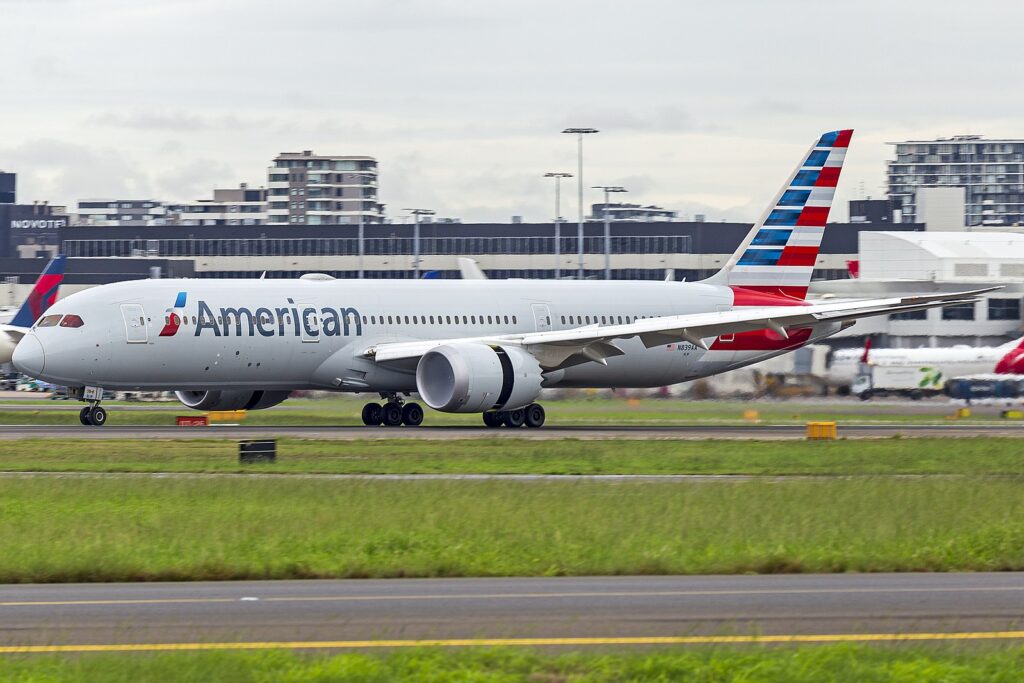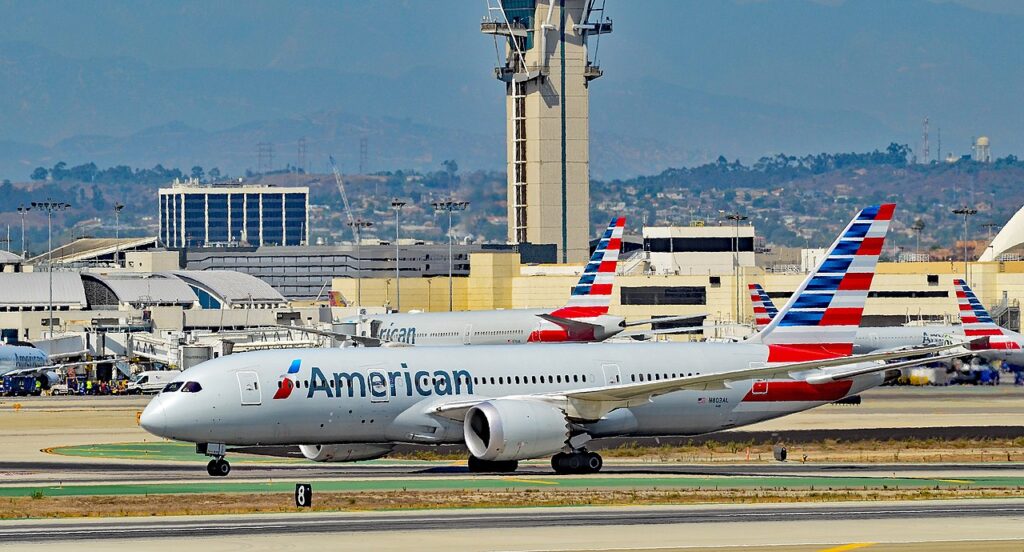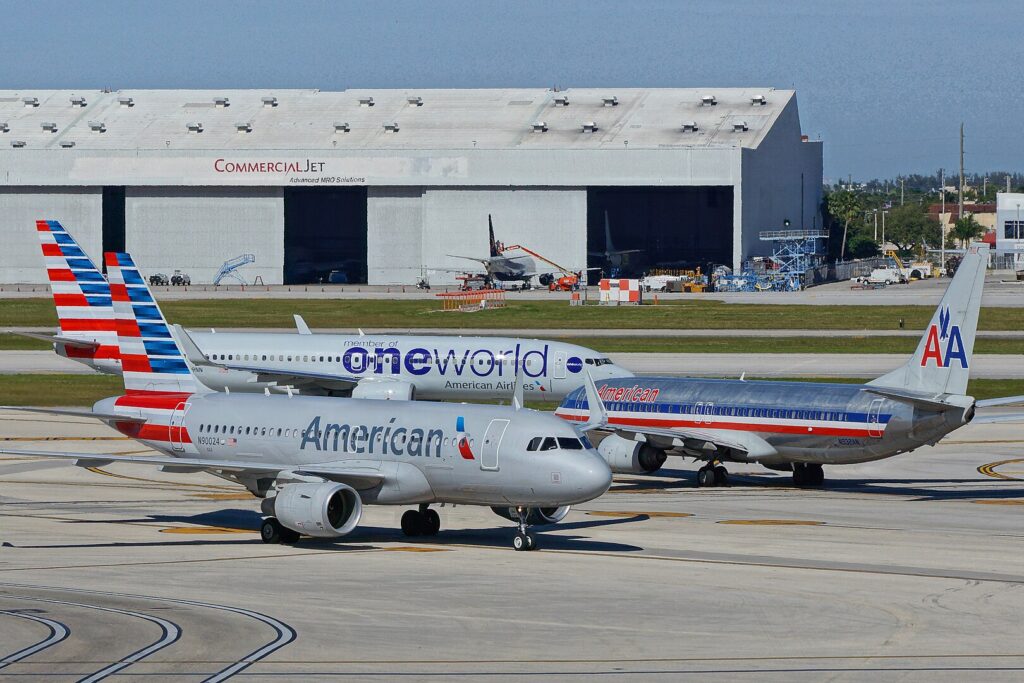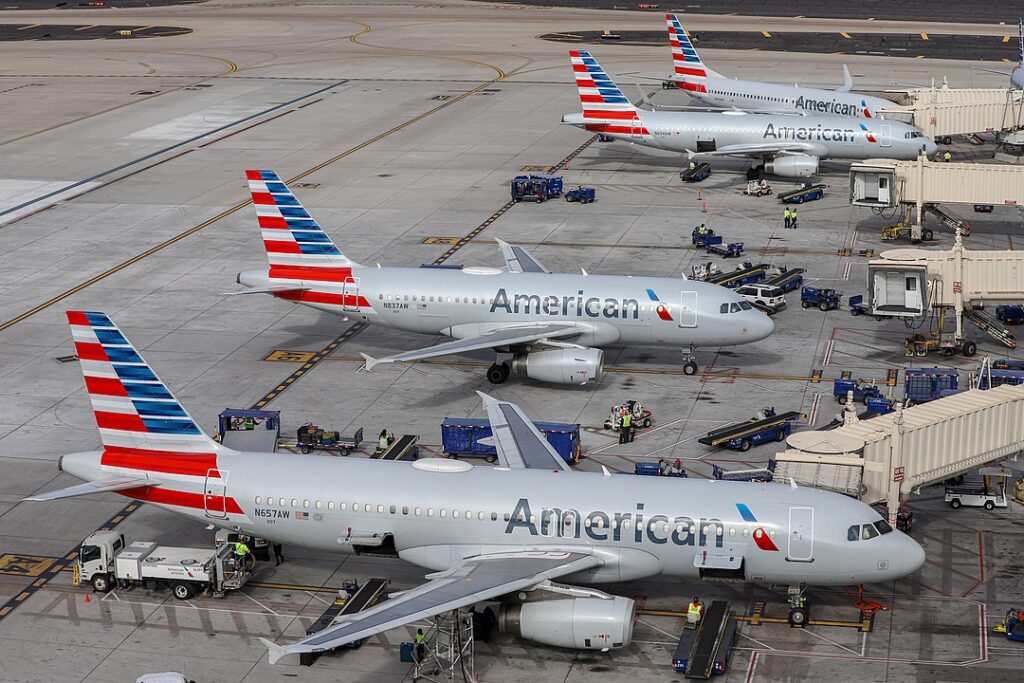WASHINGTON- The U.S. Department of Transportation (DOT) has imposed a $4.1 million fine on American Airlines (AA) for violating federal regulations and the Department’s rule prohibiting tarmac delays exceeding three hours on domestic flights without allowing passengers to disembark.
The DOT’s investigation revealed that American Airlines kept numerous flights stranded on the tarmac for extended durations without permitting passengers to deplane.
In response, the DOT is imposing the largest fine ever for tarmac delay infractions and demanding that American Airlines cease such violations.

American Airlines Fined for Tarmac Delays
This fine is part of the DOT’s comprehensive effort to safeguard the interests of travelers, which includes refunding over $2.5 billion to passengers.
U.S. Transportation Secretary Pete Buttigieg emphasized,
“This action is a continuation of our ongoing commitment to uphold the rights of airline passengers. Whether the issue is prolonged tarmac delays or challenges related to obtaining refunds, the DOT remains dedicated to safeguarding consumers’ interests and holding airlines accountable.”
A thorough investigation by the Department’s Office of Aviation Consumer Protection (OACP) uncovered that American Airlines, between 2018 and 2021, allowed 43 domestic flights to remain grounded on the tarmac for considerable periods, in breach of the Department’s tarmac delay regulation.
DOT determined that none of the exceptions to this rule, including those related to safety and security, applied to these flights.
Furthermore, one of these flights failed to provide passengers with the mandated food and water. Most of these delays occurred at Dallas Fort Worth International Airport (DAL), affecting 5,821 passengers.

CC BY-SA 2.0, https://commons.wikimedia.org/w/index.php?curid=63558701
4.1 Million Dollars Fine
The Department’s imposition of a $4.1 million fine marks the most substantial civil penalty ever applied for breaching the DOT’s tarmac delay regulation.
Out of the total fine amount, $2.05 million will be acknowledged as compensation to passengers impacted by the affected flights.
The DOT promotes the practice of airlines compensating passengers with these credits, enabling a portion of the civil penalties that would have gone to the Federal Treasury to instead serve as compensation for affected travelers.
This recent announcement is a facet of the Biden-Harris Administration’s broader initiatives aimed at enhancing rights and safeguards for air travelers.

Other Initiatives
The Department of Transportation (DOT) has undertaken several initiatives to improve passenger experiences with airlines.
Earlier this year, a new rulemaking was launched to ensure that airlines compensate and cover expenses for stranded passengers, including meals, hotels, and rebooking.
The ten largest airlines now offer meals, free rebooking on the same airline, and nine guarantee hotel accommodations through the DOT’s Airline Customer Service Dashboard.
The DOT expanded the FlightRights.Gov dashboard to highlight which airlines provide cash compensation, travel credits, vouchers, or frequent flyer miles in case of flight delays or cancellations.
The DOT aims to make passenger compensation and amenities mandatory to ensure traveler welfare during flight disruptions.
Secretary Buttigieg also urged airlines to commit to fee-free family seating and introduced a family seating dashboard. Previously, no airline had guaranteed fee-free family seating, but now, three airlines have made such commitments.
The DOT plans to pursue a rulemaking that enforces fee-free family seating for all airlines.
The DOT issued a rulemaking proposal to enhance the transparency of airline ancillary service fees. This proposal requires airlines and travel search websites to disclose fees for services like seating with a child, flight changes, cancellations, and checked or carry-on baggage.
The goal is to provide customers with clear information to make informed choices and avoid surprise fees.
Stay tuned with us. Further, follow us on social media for the latest updates.
Join us on Telegram Group for the Latest Aviation Updates. Subsequently, follow us on Google News.

